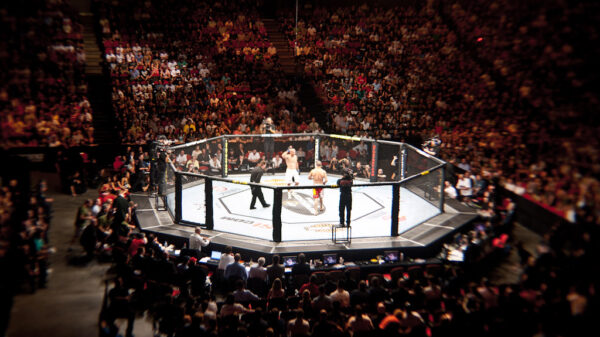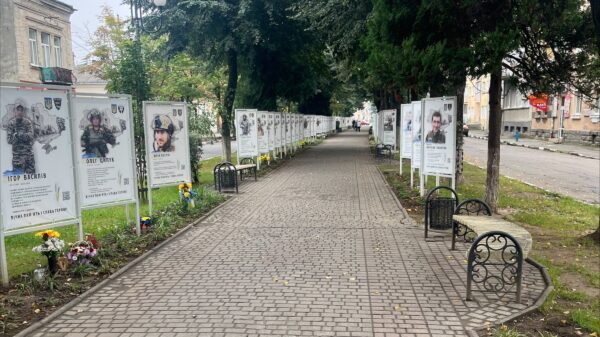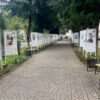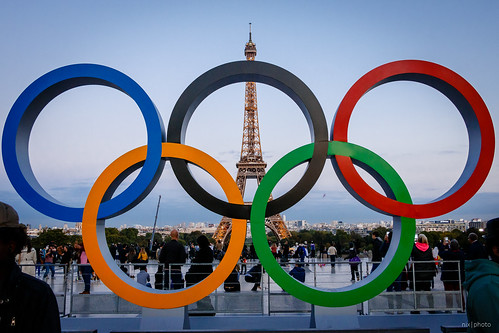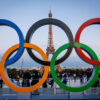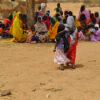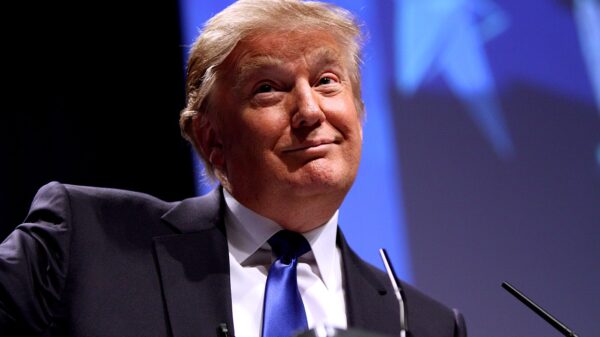Guest Writer Ved Shivakumar reminds us to stay attentive to the conflict in Western Sahara and what we can do to alleviate the suffering of the Sahrawi people.
The Western Sahara conflict, one of the world’s longest-standing refugee crises, affects over 173,600 individuals living in five displacement camps in Algeria, all of whom are in desperate need of humanitarian aid. Despite the severity of the situation, the plight of Sahrawi refugees remains largely overlooked in global discourse.
Approximately 88% of these refugees face food insecurity, with 60% being economically inactive and a third having no source of income. Nearly 11% of children aged 6 months to 59 months suffer from global acute malnutrition, and anaemia affects over half of children and women of reproductive age in these camps. As Simon, a UK runner fundraising for awareness of the conflict, poignantly observed, “All the focus is on Gaza, and rightly so, but there are some real parallels between the Palestinians and the Sahrawis. But [the Sahrawis] are forgotten.”
This parallel is significant as the Sahrawis, like Palestinians, endure the effects of occupation, with their plight stemming from Morocco’s invasion of Western Sahara in 1975.
The ongoing conflict in Gaza often overshadows these parallel struggles, yet the Sahrawi experience remains a crucial and urgent issue that warrants global attention. The Sahrawi struggle for freedom and security must not be overlooked or overshadowed; it deserves to be highlighted alongside other significant global conflicts, such as those in Gaza and Ukraine.
It is essential that the plight of the Sahrawi people is brought to the forefront of global consciousness and receives the attention it merits from those who advocate for a just and equitable world for all.
Historical Background
The conflict in Western Sahara has its roots in historical, strategic, and economic factors, and is often described as Africa’s last major colony.
After Spain withdrew from the region in 1975, Morocco and Mauritania sought to divide the territory, sparking a protracted struggle with the Polisario Front, a liberation movement representing the indigenous Sahrawi population established in 1973 to achieve independence for Western Sahara. Morocco ultimately consolidated control over most of Western Sahara, leading to a military stalemate and a United Nations (UN) mediated ceasefire in 1991.
Despite this, a referendum on self-determination for the Sahrawis has never occurred, primarily due to Moroccan objections. Since 30 October 1975, Morocco has been militarily and illegally occupying a significant portion of the sovereign territory of the Sahrawi Republic, in direct defiance of international law and the UN Charter.
This occupation disregards the 1975 ruling of the International Court of Justice (ICJ) which unequivocally stated that “there are no ties of territorial sovereignty between Morocco and the territory of Western Sahara.” Morocco’s actions also contravene multiple resolutions from both the UN Security Council and the General Assembly, which have consistently called for the withdrawal of Moroccan troops and an end to its illegal occupation.
Morocco’s claim over Western Sahara is driven by the region’s rich natural resources, including phosphates and potential offshore oil and gas reserves, representing significant economic potential. Strategically, Western Sahara provides Morocco with a vital Atlantic coastline for trade and national security.
The territory’s integration is also seen as a matter of national pride and territorial integrity, with Morocco asserting that the region has historically been part of its kingdom. However, the Sahrawis highly contested this claim and the Polisario Front led an armed and diplomatic struggle.
Under Moroccan rule, the Sahrawi people have faced significant oppression, with reports of human rights abuses including restrictions on freedom of speech, assembly, and movement. Sahrawis advocating for independence or criticising Moroccan policies often face harassment, imprisonment, and even torture. Additionally, Moroccan authorities have been accused of trying to alter the region’s demographic balance by encouraging Moroccan settlers to move into Western Sahara, further marginalising the Sahrawi population.
The international community’s attempts at resolving the conflict, including proposals for autonomy under Moroccan sovereignty, have repeatedly failed, exacerbating the humanitarian crisis for mass Sahrawi refugees living in harsh conditions in Algerian camps. Morocco’s continued occupation and settlement activities violate international law, yet diplomatic efforts are consistently obstructed by geopolitical interests and the unwillingness of key UN Security Council members to apply pressure on Rabat.
The Polisario Front continues to resist Moroccan control, occasionally resuming military activities to draw attention to the unresolved occupation and the lack of progress towards a fair resolution. The conflict remains frozen, threatening the cultural survival of the Sahrawi people and leaving their future uncertain.
The opposing stances of the International Community
International actors play a crucial role in shaping the ongoing conflict over Western Sahara. Despite its involvement since 1991 through MINURSO, the United Nations Mission for the Referendum in Western Sahara, the UN has struggled with internal divisions and sporadic engagement. The infrequent visits by Steffan de Mistura, the UN’s envoy for Western Sahara, and the delayed attempts of UN officials to visit the region to try to get a resolution, underscore the challenges of maintaining effective international scrutiny and action.
There is also a troubling trend of greenwashing in Western Sahara, where the advancement of renewable energy projects is being used as a façade to legitimise control over the territory. This approach presents the region as a model of green and sustainable development, lauded for its contributions to combating climate change. However, this narrative often masks the high human cost, as it involves displacing the Sahrawi people and undermining their homes and livelihoods.
Geopolitical influences have further complicated the conflict. Former U.S. President Donald Trump’s recognition of Moroccan sovereignty over Western Sahara in December 2020, as part of a deal for Morocco to normalise relations with Israel, marked a significant departure from longstanding UN resolutions supporting Sahrawi self-determination.
This decision, bolstered by Israel’s subsequent recognition and increased military aid to Morocco, including advanced drones, has strengthened Morocco’s position and intensified the conflict. Furthermore, the Biden administration has declined to reverse this agreement, thereby consolidating Morocco’s assertive stance in the region.
The Western Sahara dispute has roots not only in recent geopolitical moves but also in colonialism. French colonialism shaped Morocco’s borders, including drawing lines that assigned governance over Western Sahara to Morocco. This colonial legacy is compounded by France’s present-day stance; although France formally maintains neutrality, it has historically used its UN Security Council veto power to block discussions on alleged human rights abuses in the region, effectively shielding Morocco from international accountability.
This protection starkly contrasts with the stance of other international actors like the European Union (EU), Algeria and the African Union (AU), who support the Polisario Front’s calls for Sahrawi self-determination and renewed diplomatic efforts, thereby criticising Morocco’s expansionist policies.
However, France has recently abandoned its neutral stance and officially sided with Morocco on the Western Sahara issue. This pro-Morocco shift, evident in recent diplomatic statements, marks a clear departure from France’s previous position of neutrality. France’s shift, as summarised in Sarah Zaaimi’s article in the New Atlanticist, reveals how the historical colonial imprints and modern realignments jointly perpetuate Western Sahara’s unresolved status, sustaining regional tensions.
The Polisario Front has garnered substantial support from several international actors. Algeria remains a key ally, providing diplomatic, military, and humanitarian support to the Polisario, reflecting its broader geopolitical rivalry with Morocco. The AU also supports the Polisario Front, emphasising the need for decolonisation and a renewed diplomatic focus on the conflict.
Human Rights Watch and Amnesty International have highlighted abuses on both the Sahrawi and Moroccan sides, including the mistreatment of Sahrawi activists and refugees. While Morocco has denied access to independent monitors, the Polisario Front has allowed limited international scrutiny of refugee camps in Algeria. This disparity in transparency has influenced global perceptions and shaped international responses to the Western Sahara conflict.
The complex interplay of international support and opposition, combined with shifting geopolitical alliances and strategic partnerships, continues to influence the conflict’s trajectory. The ongoing stalemate highlights the urgent need for a fair resolution, as global powers diverge, Morocco maneuvers strategically, and Algeria, the AU, and France maintain opposing stances on the Polisario Front.
What can you do?
The ongoing humanitarian crisis in Western Sahara is characterised not only by the severe suffering and displacement of its people but also by a troubling lack of media attention. Despite the profound impact on human lives, the plight of the Sahrawi people remains largely ignored by global media, which frequently fails to convey the scale of the crisis and the urgent need for intervention.
Every human life is invaluable, and the fundamental rights to freedom and existence are universal entitlements. Not only have Sahrawis lost their lives or are enduring unimaginable hardships, but their struggles seldom receive the international attention they warrant. This media silence exacerbates the crisis, diminishing global awareness and reducing the pressure on policymakers to act.
To address this gap, individuals can turn to social media platforms such as the Western Sahara Support Group on Instagram and Crisis Group’s news page for vital updates. Organising fundraisers and donating to reputable organisations like UNICEF, which supports Sahrawi refugee children and their families, the Sandblast Arts Sahara Marathon, and the Western Sahara Support Group can provide essential resources to those in need.
Advocating for policy changes by writing to elected officials and participating in campaigns can also exert pressure on governments to take stronger action. For UK citizens, engaging with petitions or contacting local MPs can further support the Sahrawi cause.
By amplifying their voices and bringing their plight to the forefront, the international community can reaffirm its commitment to human dignity and ensure that every life is valued and protected. The right to a decent life, free from conflict and deprivation, should be a universal reality, and addressing the Western Sahara crisis with the seriousness it deserves is essential to upholding this fundamental principle.



